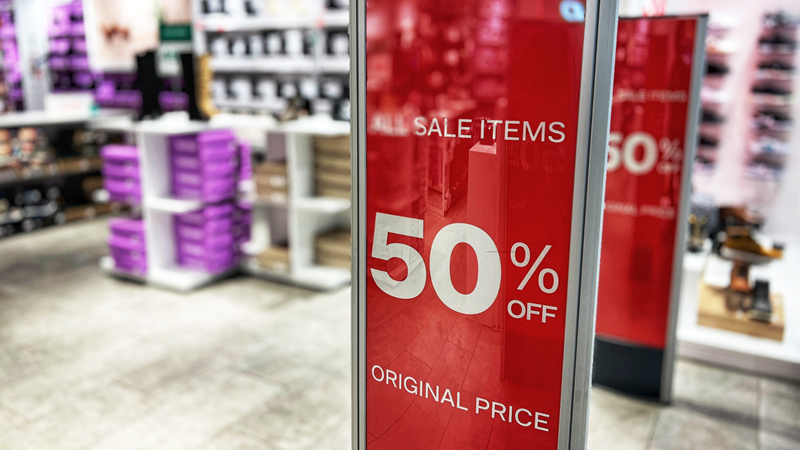Decoding rules for online reviews, influencer marketing and AI deceptive marketing claims
The CMA’s Director, Public Affairs and Regulatory Standards, Florentina Stancu-Soare, reached out to the Competition Bureau to get their perspectives on what marketers need to know about online reviews, influencer marketing and AI deceptive marketing claims.
Josephine Palumbo, Deputy Commissioner, Deceptive Marketing Practices Directorate, Competition Bureau provides insights and tips on how to ensure that marketing activities are truthful and not misleading in this guest blog.
1. What should brands and marketers know about online reviews rules within the context of influencer marketing?
In influencer marketing, advertisers share responsibility with influencers when they post ads on social media. As such, both advertisers and influencers need to remember that truth in advertising is important.
In the digital world, many consumers rely on the opinions and reviews shared online by influencers. Consumers believe they are genuine and impartial, and use them to help make purchasing decisions. It is misleading if influencers do not make it clear when their online content is actually promotional.
Influencers need to clearly and prominently disclose any material connections they have with a business, product or service they promote. Connections may be “material” if they have the potential to affect how consumers evaluate the influencer's independence. For example, there may be a material connection if the influencer receives:
- payment in money or commissions,
- free products or services,
- discounts,
- free trips or tickets to events, or
- has a business or family connection with the brand.
Additionally, influencers should not make any performance claims that are not backed up by adequate and proper testing, as it is prohibited by the Competition Act. This includes any type of statement, warranty or guarantee of a product’s performance, efficacy or length of life. Moreover, when reviewing a product, influencers should be honest about what the product has done for them. If there is not testing or proof to back up their performance claims, influencers should stick to their own personal experience.
Remember, advertisers may be liable for claims made by influencers. Therefore, it is important that they take measures to ensure that the influencers they work with comply with the law.
2. What steps can marketers and brands take to be compliant? When engaging influencers in campaigns, what should be top of mind?
Disclose, disclose, disclose! Advertisers should ensure that influencers clearly disclose all material connections. This means, again, all connections that could affect how consumers evaluate and perceive an influencer’s link to a brand.
Here are some best practices in how to disclose these connections:
- Make sure that the disclosures are as visible as possible;
- The disclosures should be prominent and should be visible on all devices without having to click or tap a button to expand the post;
- If the content is being shared on multiple social media platforms, make sure the disclosures appear on each one;
- Ensure the disclosures are clear and contextually appropriate;
- Use plain and clear language in the disclosures. Avoid ambiguous terms and abbreviations;
- Keep in mind the way the audience views or experiences the online content. Certain content may require both audio and visual disclosures;
- The influencers’ linking to or tagging a brand, posting a discount code, or linking to an affiliate webpage is unlikely to be enough for consumers to understand a possible connection to help them make informed choices; and
- Do not assume that the influencers’ followers already know about the material connection between the influencers and the brand.
In addition, advertisers should also ensure that the influencer’s content is not false or misleading and does not contain unsubstantiated product performance claims. When assessing whether a claim is false or misleading, keep in mind that both the literal meaning and the general impression it conveys are taken into consideration. If it is unclear whether a claim will mislead or misrepresent, then do not include it. Leave nothing to chance when ensuring compliance with the law.
3. What are some common red flags/complaints you receive from consumers?
Consumers are relying more and more on influencers when making purchasing decisions. We believe that to make informed decisions, consumers need accurate information. Therefore, if an influencer was paid by a brand to say a product is the next best thing, consumers must be able to evaluate the influencer’s independence from the brand. This is important.
While some consumers may be able to identify problematic disclosures made by influencers and report them to us, others are often not able to detect deceptive representations from an influencer on their own. Most consumers trust that the information provided by influencers is true and unbiased. This is one of the reasons that the Bureau reminds advertisers and influencers about the importance of compliance. Consumers expect and deserve truth in advertising and the Bureau will not hesitate to take action where needed. The Bureau strongly encourages anyone who suspects that a company or individual is making deceptive or misleading claims to report it.
4. Do the online review guidelines extend to review bombing by consumers with false/misleading reviews?
Genuine online consumer reviews benefit both consumers and businesses – they are intended to provide a wealth of unbiased product information to help consumers shop smart, and they reward businesses that provide a greater product or service.
False or misleading reviews, used for the promotion of the supply or use of a product, service or any business interest, are a violation of the Competition Act. Regular consumers engaging in review bombing, by posting multiple negative reviews or rating, would not raise issue under the Act as it is not done for a commercial purpose.
However, posting false or misleading reviews can be part of an organized effort by companies to boost their own ratings or lower those of their competitors. Companies might give customers incentives to engage in review bombing with false or misleading reviews. This conduct is captured by the Act.
5. What do marketers and brands need to know about AI claims?
Claims that promote AI related abilities are treated the same as any other claims. When promoting a product, service or business interest, a company should not make any false or misleading claims that influence a consumer to buy or use the product or service advertised.
It is important to understand that the term AI is quite general and there is not a standardized definition for it. One person’s view of what constitutes AI can easily differ from that of the next person. As such, there is a higher likelihood that AI related claims could be misinterpreted or misunderstood by the consumer. We recommend that advertisers make it very clear in their marketing materials what they mean. As well, we would advise businesses to make sure any performance claim is backed up by adequate and proper testing, and that the testing, is in fact, completed before the claim is made to the consumer. Doing so afterwards, will not fix the potential deception.
When ready to market the product, write your claim in plain language. Be mindful of the general impression of your marketing material as a whole and ensure the testing support it. Consumers expect and deserve truthful claims.
AI or not, do your homework before going full steam ahead with any claim!
6. Do the misleading advertising provisions and disclosure rules apply to AI-generated advertising and content? Tips and recommendations on how marketers and brands can be compliant?
The Competition Act applies to all forms of commercial materials, regardless of how they were created. As such, the misleading advertising and deceptive marketing practices provisions do cover AI generated advertising and content.
In addition to the tips provided in the previous questions, I recommend that businesses consider measures to ensure continued compliance. Businesses of all types and sizes can minimize their risk of engaging in false or misleading advertising and other anticompetitive activity by implementing and maintaining a corporate compliance program. Visit the Bureau’s Compliance Portal for more information about how to stay on the right side of competition and build a credible and effective compliance program for your business.
7. With the emergence and explosion of AI, any fraud or deception flags and tips for consumers?
With or without AI involved in the fraud or deception, the best way to avoid becoming a victim is to be informed and to be vigilant. Consumers should keep the following advise in mind:
- If it looks too good to be true, it probably is.
- Take all online information with a grain of salt.
- Re-read the details of the offer and the fine print.
- Take a moment to think before parting with your money or information.
- Consult a trusted person or sleep on it.
- Get to know the different types of scams.
- Always report instances of fraud or deception.
We are here to help and we encourage anyone who suspects that a company or individual is making deceptive representations or unsupported performance claims, to report it.
8. Where can businesses or consumers get more information?
Businesses and consumers can visit the Bureau’s website for more information and guidance about influencer marketing, false or misleading representations, or performance claims.
Author:
Josephine A.L. Palumbo, Deputy Commissioner, Deceptive Marketing Practices Directorate, Competition Bureau (Canada)


































